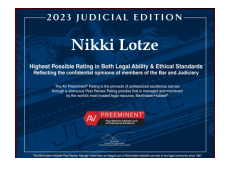At Lotze Mosley, LLP, our Washington D.C. criminal defense attorney knows during interrogations, law enforcement officers are generally allowed to use various tactics to elicit information from individuals, and this may include deception or lying.
While the exact rules can vary based on the circumstances, some general principles must be remembered.

False Pretenses
Police may use pretenses or deceptive tactics during interrogations. For example, they might falsely claim to have evidence against the suspect, suggest that an accomplice has already confessed, or provide misleading information about the seriousness of the charges.
Undercover Operations
Undercover officers may use deception as part of their investigations. This could involve posing as someone else to gain a suspect’s trust or obtain information.
Miranda Rights
While police are required to read individuals their Miranda rights upon arrest, they are not prohibited from using deceptive tactics before issuing these warnings. Once a suspect is in custody and being interrogated, Miranda rights become applicable.
Voluntary Confessions
A confession obtained through deceptive means is generally admissible in court as long as it is deemed voluntary. However, the specific circumstances surrounding the confession will be scrutinized, and if coercion or duress is involved, the confession may be challenged.
Ethical Considerations
While legal, the use of deception in law enforcement has ethical implications. Many law enforcement agencies have guidelines and ethical standards that officers are expected to follow, and excessive or inappropriate deception may be subject to internal review.
It is crucial to understand that even though police can use deceptive tactics, you have rights protected by the Constitution, including the right to remain silent and the right to an attorney.
If you believe your rights have been violated or that the interrogation tactics used were inappropriate, it is essential to seek legal advice to understand your options and potential recourse.
Contact our skilled Criminal Defense Attorneys in Washington D.C.
Contact our skilled criminal defense attorneys in Washington D.C. at Lotze Mosley, LLP, by calling (202)-393-0535. This will ensure your rights are protected from the beginning so you can make informed decisions about your future.













